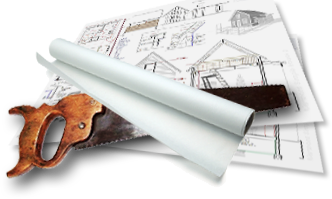
Energy usage is one of the most important factors determining a household’s energy bills. It is essential to understand how much energy your home uses compared to other families to know whether you use more than the average.
The best way to determine if your household uses more energy than the average is by checking your monthly energy meter and computing it from there. If you’re unsure how to do it, find out more about it in this article.
Factors That Affect Your Home’s Energy Usage
Every house is different, with different situations, families, and energy usage. But here are some things that could be affecting your home’s energy usage:
Size of Your House
The number one factor in energy usage is the size of your house and how much space it has. If your home is large, you are likely to use more energy than a smaller one since more rooms need to be heated or cooled.
Number of People in Your Household
The number of people living in your home can also affect how much energy the household uses. A more prominent family will typically use more power than a smaller one, as more people heat and cool rooms and use appliances.
Age of Home
Due to drafty windows and doors and inefficient insulation, older homes are less energy efficient. If you live in an older home, then it could be using more energy than newer homes.
Insulation
Proper insulation can reduce the energy needed to heat or cool a room, so if your home is poorly insulated, it could use more power than necessary.
Type of Appliances
Lastly, the most significant factor that affects your home’s energy usage is the type of appliances you have. Older, less energy-efficient appliances will use more energy than newer, more efficient ones.
The number of appliances used is also essential. If you have several machines running simultaneously, it can add up to a lot of energy usage. So if you are trying to reduce your energy bills, then it is vital to use only what you need when necessary.
The Average Home Power Usage Per Day in The UK
In the United Kingdom, the average home energy usage per day is approximately 16.7 kWh, which equates to 612 kWh a month. This figure includes both electricity and gas usage. To compare your household’s energy use with this figure, you can track your monthly energy bills or use a smart meter to get an accurate readout of how much energy you’re using.
To compute how much energy you use relative to the average, divide your monthly energy reading by 612 kWh. This will give you a rough estimate of how your usage compares with the national average.
Appliances That Contribute Large Home Power Usage
Several factors will come into play here, such as the size and number of appliances, but typically the highest-energy-consuming items in a home are::
Heating and air conditioning
Heating and air conditioning can use a lot of energy, depending on the temperature and size of your home. Some energy-efficient heating and cooling systems are central air, radiant heaters, and geothermal systems.
Refrigerator/freezer
This is one of the most significant energy consumers in a home. To conserve energy when using this appliance, keep it whole as it will run more efficiently at total capacity and avoid opening the door too often.
Televisions, computers, and other electronics
These can use a lot of energy when left on standby, so switch them off when not in use.
Clothes washer/dryer
This is an essential appliance for many households; however,
Clothes washer/dryer
Washing machines with dryers consume more energy than those without, as they use more power to dry clothes.
Lighting
Most homeowners forget to switch off their lights, which can add to a lot of energy usage. Lights are another significant contributor to your energy bills, so try to use them sensibly and find energy-efficient lighting options.
Computers
The amount of energy computers use depends on how often you use them and the type of computer. Make sure to turn them off when not in use to save energy.
Energy Efficiency Measures
Now that you know what is affecting your home’s energy usage, you can start to make changes that will help reduce energy usage and save money on energy bills. Some of these methods include:
• Insulate your home properly
• Install a programmable thermostat
• Replace old appliances with more efficient models
• Invest in renewable energy sources
• Use LED light bulbs
• Turn off lights and appliances when not in use
Installing energy-saving measures such as double-glazed windows and LED lights can dramatically reduce your home’s energy usage and help you save money in the long run.
Moreover, it is also important to remember how you use your appliances can affect your energy usage—for example, turning off lights and unplugging electronics when not in use can make a big difference.
Conclusion
By understanding how much energy your household uses compared to other households, you can make changes to save energy and lower your energy bills. If you think your home uses more power than the average, then it may be time to consider installing energy-saving measures, such as LED lights, double-glazed windows, and a programmable thermostat.
Finally, remember that how you use your appliances can also impact your energy usage – so use them wisely!
If you need help utilizing your energy at home, Utility Bidder can help. Find out more about what we can do for your UK home and help you save money on energy.








